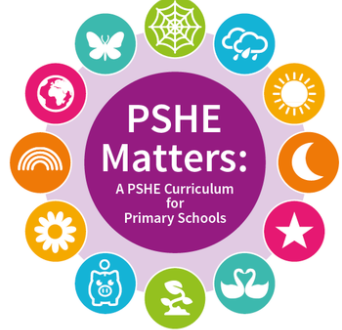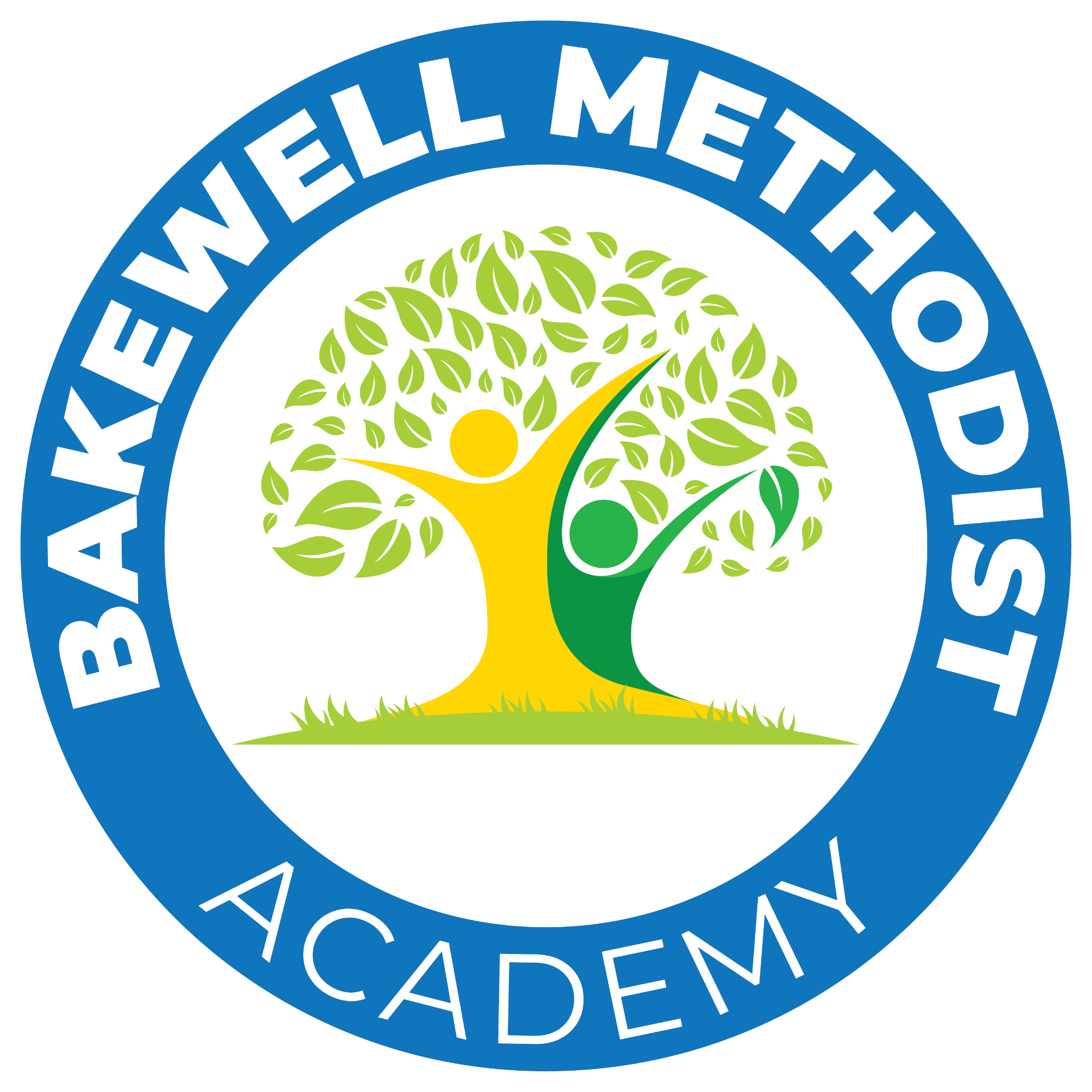Personal, Social, Health and Economic Education
Intent
At Bakewell Methodist Junior School, Personal, Social, Health and Economic Education enables our children to become healthy, independent and responsible members of society. Our PSHE curriculum intends to deliver a curriculum that is accessible to all and that will maximise the outcomes for every child so that they know more, remember more and understand more. It aims to help them understand how they are developing personally and socially and tackles many of the moral, social and cultural issues that are part of growing up. We provide our children with opportunities for them to learn about rights and responsibilities and appreciate what it means to be a member of a diverse society. Our children are encouraged to develop their sense of self-worth by playing a positive role in contributing to school life and the wider community. We aim to prepare children to be global citizens now and in their future roles within a global community. Our curriculum enables pupils to explore the complexity of the relationships they have now and to know how to be safe, preparing them to understand and develop healthy relationships in their future lives.
At Bakewell, we have a clear and comprehensive scheme of work in line with the National Curriculum which we feel aligns with our curriculum drivers of diversity, resilience, creativity and aspiration. The curriculum is rich in knowledge; the children need to be able to make informed choices and decisions, but equally importantly need to learn and develop the personal attributes and skills to be equipped to deal with a range of situations.
Our curriculum drivers are taught both explicitly and implicitly throughout the curriculum, as well as ensuring we cover a wide range of areas to support children to become responsible citizens. PSHE supports our science and PE curriculum in reiterating the importance of a healthy and balanced lifestyle both physically and mentally. We firmly believe that a meaningful PSHE curriculum is the key to children becoming confident, tolerant and well-rounded adults.
Implementation
Policy Development
This policy has been developed in consultation with staff, pupils and parents. The consultation and policy development process involved the following steps:
1. Review – The Curriculum Leader pulled together all relevant information including relevant national and local guidance.
2. Staff consultation – all school staff were allowed to look at the policy and make recommendations.
3. Pupil consultation – we investigated what exactly pupils want from their PSHE.
4. Ratification – once amendments were made, the policy was shared with governors and ratified.
Curriculum
Our curriculum is set out below, but we may need to adapt it as and when necessary.
We have developed the curriculum in consultation with parents, pupils and staff, taking into account the age, needs and feelings of pupils. If pupils ask questions outside the scope of this policy, teachers will respond appropriately so they are fully informed and don’t seek answers online or from unreliable sources.
Primary sex education will focus on:
● Preparing boys and girls for the changes that adolescence brings
● How a baby is conceived and born
What does our PSHE curriculum include?

Our curriculum follows the PSHE Matters syllabus created by Derbyshire County Council. This splits the subject into 12 modules which are taught at Lower and Upper Key Stage 2.
The 12 modules are:
1. Drug Education - including how to manage risk and peer influences
2. Exploring Emotions - including how to recognise and manage feelings and emotions
3. Being Healthy - including the importance of looking after our mental health
4. Growing up - including the Sex Education element
5. Changes - including loss
6. Bullying Matters - including how to ask for help
7. Being Me - including identity and community
8. Difference and Diversity - including challenging stereotypes
9. Being Responsible - including looking after the environment
10. Being Safe - particularly featuring cyber, gaming and CSE
11. Relationships - including what is a healthy relationship. (This includes lessons on consent and acceptable physical contact in LKS2 and UKS2).
12. Money Matters - including enterprise
Delivery of PSHE
PSHE is taught within the personal, social, health and economic (PSHE) education curriculum. Other aspects are included in religious education (RE), Science and Computing.
Relationships education focuses on teaching the fundamental building blocks and characteristics of positive relationships including:
- Families and people who care for me
- Caring friendships
- Respectful relationships
- Online relationships
- Being safe
These areas of learning are taught within the context of family life, taking care to ensure that there is no stigmatisation of children based on their home circumstances (families can include single-parent families, LGBT parents, families headed by grandparents, adoptive parents, and foster parents/carers, amongst other structures) along with reflecting sensitively that some children may have a different structure of support around them (for example: looked after children or young carers). We teach sexual orientation to children at the appropriate age and stage to ensure there is no stigmatisation and so that all children learn the knowledge they need to be tolerant, accepting and open-minded members of society.
For children with special educational needs and/or disabilities, learning is adapted using the same quality first teaching strategies for other curriculum areas. For individual children with specific needs, the content and sequence of the curriculum are shaped to meet their specific needs at different developmental stages.
Roles and Responsibilities
The governing board
The governing board will approve the PSHE policy, and hold the headteacher to account for its implementation.
The headteacher
The headteacher is responsible for ensuring that PSHE is taught consistently across the school, and for managing requests to withdraw pupils from non-statutory components of PSHE (see section 8).
Staff
Staff are responsible for:
● Delivering PSHE in a sensitive way
● Modelling positive attitudes to PSHE
● Monitoring progress
● Responding to the needs of individual pupils
● Responding appropriately to pupils whose parents wish them to be withdrawn from the non-statutory components of PSHE
Staff do not have the right to opt out of teaching PSHE. Staff who have concerns about teaching PSHE are encouraged to discuss this with the headteacher.
Individuals responsible for teaching PSHE at Bakewell Methodist Junior School:
Pupils
Pupils are expected to engage fully in PSHE and, when discussing issues related to PSHE, treat others with respect and sensitivity.
Parents’ right to withdraw
Parents do not have the right to withdraw their children from relationships education. Parents have the right to request that their child be withdrawn from some or all of sex education delivered as part of statutory RSE. Specifically, this means parents may choose to withdraw their children from the non-statutory aspects of the Year 6 PSHE curriculum. Requests for withdrawal should be put in writing using the form found in Appendix 2 of this policy and addressed to the headteacher. Alternative work will be given to pupils who are withdrawn from sex education.
Training
Staff are trained on the delivery of PSHE as part of their induction and it is included in our continuing professional development calendar.
Monitoring arrangements
The delivery of PSHE is monitored by Leanne Holmes (Curriculum leader) and the wider Senior Leadership team through:
- Learning walks
- Work scrutiny
- Pupil voice interviews
Impact
By the end of primary school children should know the following based on our themes taught across school:
Families and people who care about me
- That families are important for children growing up because they can give love, security and stability
- The characteristics of healthy family life, commitment to each other, including in times of difficulty, protection and care for children and other family members, the importance of spending time together and sharing each other’s lives
- That others’ families, either in school or in the wider world, sometimes look different from their family, but that they should respect those differences and know that other children’s families are also characterised by love and care
- That stable, caring relationships, which may be of different types, are at the heart of happy families, and are important for children’s security as they grow up
- That marriage represents a formal and legally recognised commitment of two people to each other which is intended to be lifelong
- How to recognise if family relationships are making them feel unhappy or unsafe, and how to seek help or advice from others if needed
Caring friendships
- How important friendships are in making us feel happy and secure, and how people choose and make friends
- The characteristics of friendships, including mutual respect, truthfulness, trustworthiness, loyalty, kindness, generosity, trust, sharing interests and experiences and support with problems and difficulties
- That healthy friendships are positive and welcoming towards others, and do not make others feel lonely or excluded
- That most friendships have ups and downs, and that these can often be worked through so that the friendship is repaired or even strengthened, and that resorting to violence is never right
- How to recognise who to trust and who not to trust, how to judge when a friendship is making them feel unhappy or uncomfortable, managing conflict, how to manage these situations and how to seek help or advice from others, if needed
Respectful relationships
- The importance of respecting others, even when they are very different from them (for example, physically, in character, personality or backgrounds), or make different choices or have different preferences or beliefs
- Practical steps they can take in a range of different contexts to improve or support respectful relationships
- The conventions of courtesy and manners
- The importance of self-respect and how this links to their own happiness
- That in school and in wider society they can expect to be treated with respect by others, and that in turn they should show due respect to others, including those in positions of authority
- About different types of bullying (including cyberbullying), the impact of bullying, responsibilities of bystanders (primarily reporting bullying to an adult) and how to get help
- What a stereotype is, and how stereotypes can be unfair, negative or destructive
- The importance of permission-seeking and giving in relationships with friends, peers and adults
Online relationships
- That people sometimes behave differently online, including by pretending to be someone they are not
- That the same principles apply to online relationships as to face-to face relationships, including the importance of respect for others online including when we are anonymous
- The rules and principles for keeping safe online, how to recognise risks, harmful content and contact, and how to report them
- How to critically consider their online friendships and sources of information including awareness of the risks associated with people they have never met
- How information and data is shared and used online
Being safe
- What sorts of boundaries are appropriate in friendships with peers and others (including in a digital context)
- About the concept of privacy and the implications of it for both children and adults; including that it is not always right to keep secrets if they relate to being safe
- That each person’s body belongs to them, and the differences between appropriate and inappropriate or unsafe physical, and other, contact
- How to respond safely and appropriately to adults they may encounter (in all contexts, including online) whom they do not know
- How to recognise and report feelings of being unsafe or feeling bad about any adult
- How to ask for advice or help for themselves or others, and to keep trying until they are heard
- How to report concerns or abuse, and the vocabulary and confidence needed to do so
- Where to get advice e.g. family, school and/or other sources
